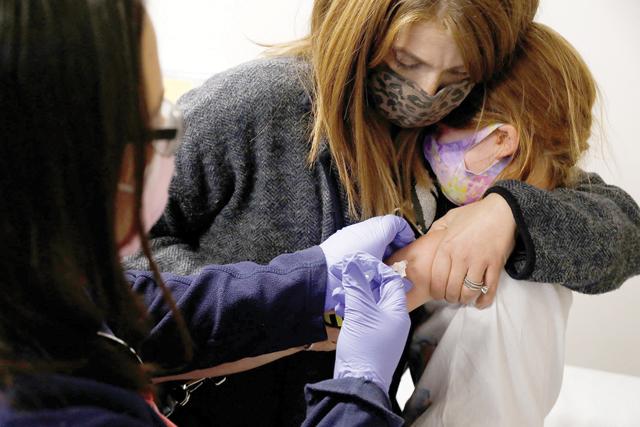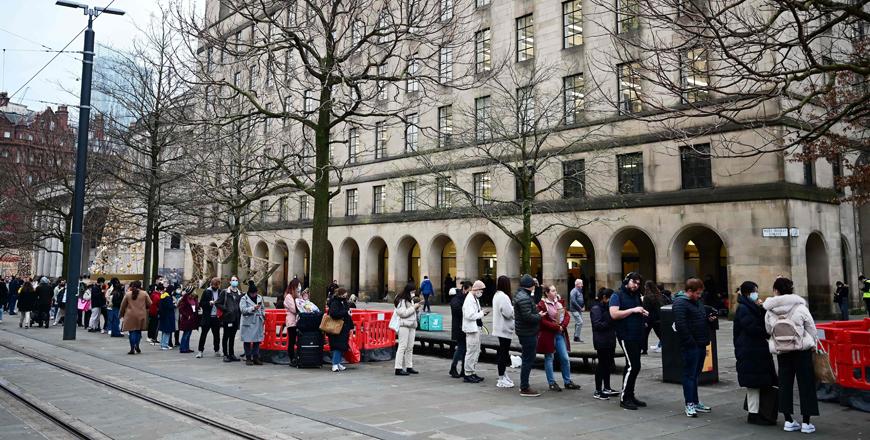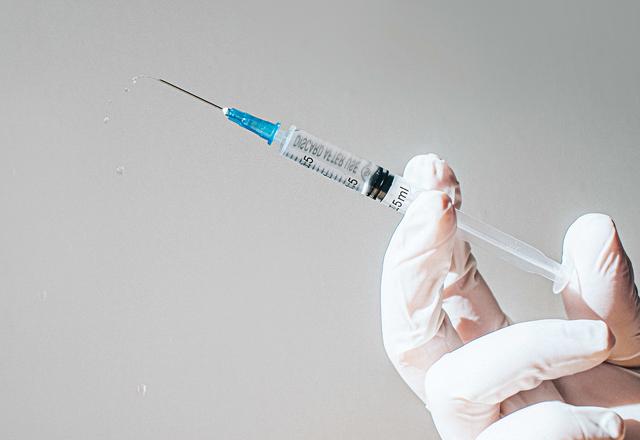You are here
Pfizer to seek green light to vaccinate kids 5 and under — reports
By AFP - Feb 01,2022 - Last updated at Feb 01,2022

In this file photo taken on November 3, 2021, a six-year-old child is comforted by her mother as she receives her first dose of the Pfizer-BioNTech COVID-19 vaccine by medical assistant Alli Shapiro at the Child Health Associates office in Novi, Michigan (AFP photo)
WASHINGTON — Pfizer and BioNTech will soon ask US regulators for emergency authorisation for a COVID-19 vaccine for children aged five and under, US media reported on Tuesday.
This is the last age group in the United States that is not yet eligible for coronavirus shots.
As early as Tuesday, the companies could seek emergency authorization for a two-dose vaccination regimen for children under five and as young as six months, The New York Times and other news outlets said.
The move comes as the Omicron variant wave is waning in the United States but parents are still grappling with school closures and concerns for their unvaccinated children.
New pediatric COVID hospitalisations hit a record high in the United States in December as the Omicron strain spread rapidly.
Last month, the Food and Drug Administration (FDA) approved Pfizer's COVID-19 booster shot for children as young as 12.
But vaccination rates among this age group are relatively low, less than 22 per cent, according to the Centres for Disease Control and Prevention.
As they seek the green light for children under five to receive two doses of the vaccine, Pfizer and BioNTech will also continue studies on a three-shot regimen, the Times said.
The FDA hopes to approve shots for young kids as early as late February. Data on a three-dose regimen would not be submitted until late March, the daily added.
The companies concluded last fall that low doses of the vaccine provided protection in children up to two years old but not in kids aged two to five, announcing in December they would add a third dose to their trials.
"We know that two doses isn't enough, and we get that," a source told The Washington Post.
"The idea is, let's go ahead and start the review of two doses. If the data holds up in the submission, you could start kids on their primary baseline months earlier than if you don't do anything until the third-dose data comes in."
Related Articles
WASHINGTON — Pfizer said on Tuesday that clinical trials confirmed its COVID pill — a new type of treatment that should withstand the mutati
Experts say it is too soon to know for sure if countries will need to organise a third vaccine round later in the year. Some suggest that priority should be given to hundreds of millions in the global south who have not even gotten their first jab yet.
The Health Ministry on Wednesday said it will begin immunising children against the rotavirus on Sunday after its inclusion in the national vaccination programme.


















